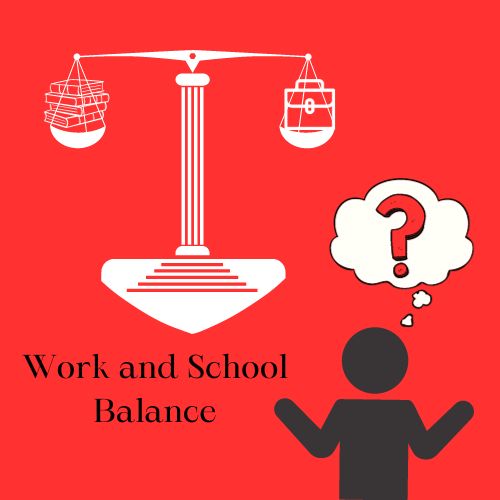
It can be a challenge for students who have jobs to balance their work with their lives and their education. Students who can limit the hours per week they work, often have a higher chance of succeeding in school.
Currently, the state of Oregon limits work hours for 16 and 17 year olds to 44 hours per week all year round while 14 and 15 year olds are limited to 18 hours of work during the school year.
A study by the University of Washington found that when high school students work more than 20 hours a week, their grades suffer. Lincoln’s Career Coordinator, Shannon Fasold, agrees.
“Research has shown that students do better [at school] when they [are] working up to a certain number of hours, so I personally think between 10 and 15 [hours] is kind of the sweet spot,” said Fasold.
Junior Ella Spangler works part time at Bamboo Sushi. She chooses to help balance her education and employment by only working a couple of days during the week, working in total around 5-10 hours per week.
“[It] hasn’t been that difficult [to balance work and school] but I would say I usually work Wednesdays directly after school so if I have a lot to do I usually stay up later,” said Spangler.
Many students work to better their future, rounding out their college applications or resumes. Some students, however, must work more hours in order to help support their families, help pay for their own expenses or many other reasons.
“I think sometimes people don’t give themselves credit for the fact that a paid job is an activity and it is an excellent activity especially for students who like to contribute for their own expenses. I would say that [colleges] think of it highly,” said Fasold.
Yearly, students are required to be in class for 990 hours in grades 9-11, seniors needing a required seat time of 966 hours. These extensive hours of education can make having, as well as finding a job difficult. Problems arise when one begins to put a job before getting schoolwork done. This struggle finding balance can also lead to self esteem issues as students’ grades drop.
Fasold talks about the effect on students who have too much on their plate.
“[When students procrastinate], they have to work and then they call in sick to work because they’re behind. It’s kind of this vicious cycle that ends up making them feel like they’re no good, even though they are, but they’ve dug themselves into a pit,” said Fasold.
